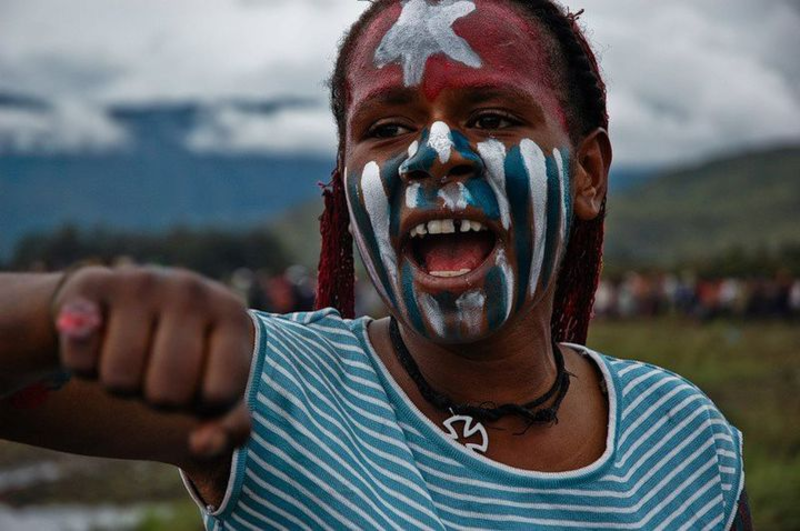David Adam Stott
Read more, Japan Fokus
“Where it cuts across the island of New Guinea, the 141st meridian east remains one of colonial cartography's more arbitrary yet effective of boundaries.”1
On July 9, 2011 another irrational colonial border that demarcated Sudan was consigned to history when South Sudan achieved independence. In the process an often seemingly irrevocable principle of decolonisation, that boundaries inherited from colonial entities should remain sacrosanct, has been challenged once again. Indeed, a cautious trend in international relations has been to support greater self-determination for ‘nations’ without awarding full statehood. Yet Kosovo is another state whose recent independence has been recognised by most major players in the international community.2 In West Papua’s case, the territory’s small but growing elite had been preparing for independence from the Netherlands in the late 1950s and early 1960s, and Dutch plans envisaged full independence by 1970. However, in 1962 Cold War realpolitik intervened and the United States engineered a transfer of sovereignty to Indonesia under the auspices of the United Nations. To Indonesian nationalists their revolution became complete since West New Guinea had previously been part of the larger colonial unit of the Netherlands East Indies, which had realised its independence as Indonesia in 1949. In West New Guinea, most Papuans felt betrayed by the international community and have been campaigning for a proper referendum on independence ever since.
Jakarta has staunchly resisted any discussion of West Papua’s status outside of the Unitary Republic of Indonesia. However, in February 1999 Papuan civil society representatives convened in Jakarta for unprecedented talks with President Habibie, Suharto’s successor who was eager to demonstrate his reformist credentials. Habibie’s own successor Abdurrahman Wahid initially attempted a policy of tentative engagement with Papuan civil society, which included sponsoring the Papuan Congress of May 2000. This so-called ‘Papuan Spring’ of 1999-2000 marked the zenith of pan-Papuan organising and solidarity, prompting speculation that West Papua might follow East Timor in conducting a referendum over its status.
During this period Papuan nationalists were also able to fly their Morning Star flag for the first time without fear of long jail terms or violent reprisals. However, as hardliners in the Indonesian military consolidated power after a period of relative weakness, the flowers of the Papuan Spring withered and Wahid was removed from office in July 2001.3
| Papuan girl at an independence rally in Wamena, August 2011 |
So far, this dual strategy of dividing Papuan civil society and increasing the costs of Papuan resistance has appeared effective since the momentum generated during the Papuan Spring has not been sustained. Nevertheless, the frequent demonstrations across the territory protesting the failures of Special Autonomy and demanding a referendum have taken on a greater urgency since Indonesian migrants now constitute more than half of West Papua’s population. However, if allowed to vote in a referendum it is probable that many of these settlers would view continuing integration with Indonesia as more in their interest. This raises the question of whether they could or should be excluded from participating in any vote on West Papua’s status. At the time of East Timor’s referendum in 1999, Indonesian migrants constituted around 10% of its population and were excluded from the voter registration process.6 For Papuan nationalists, the demographic situation is therefore much more perilous, and it has also been argued that an independent West Papua is unviable.7 This paper will attempt to analyse what kind of independent state West Papua might become if the territory were to follow Timor-Leste and South Sudan into statehood. Would it become another so-called ‘failing state’, like its closest neighbours Papua New Guinea (PNG), Timor-Leste and the Solomon Islands? By examining some of the difficulties affecting West Papua’s neighbours post-independence this paper will introduce some of the main challenges an independent West Papua could likely face. In conclusion it will examine the prospects for a better future for ordinary Papuans, whether through independence or genuine autonomy within Indonesia.
More>>Japan Fokus








0 Komentar Anda:
Post a Comment
Your Comment Here